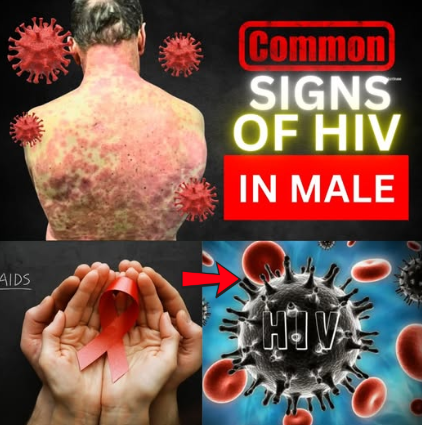
Fever is your body’s natural defense mechanism—it signals that your immune system is actively fighting off an infection. But while most fevers are short-lived and harmless, a fever that lingers for days or even weeks is a different story. Persistent fever often points to deeper health concerns that require medical attention. Knowing the associated symptoms and possible causes can help you act quickly and protect your long-term well-being.
Persistent Fever: When a Common Symptom Becomes Concerning
A fever that doesn’t subside within a few days should raise a red flag. Unlike the short spikes of temperature that occur with the flu or a cold, a fever lasting more than a week may indicate a chronic infection, an autoimmune condition, or even certain cancers. This prolonged rise in temperature often comes with chills, fatigue, and discomfort that interfere with daily activities.
If you notice your fever returning or persisting without improvement, don’t brush it off. It could be your body’s way of signaling a serious underlying problem.
Fatigue: More Than Just Feeling Tired
Persistent fever is often paired with profound fatigue—a deep sense of exhaustion that no amount of rest seems to fix. This kind of tiredness can make it difficult to concentrate, perform routine tasks, or maintain your usual level of activity.
Fatigue with fever may stem from bacterial or viral infections, but it can also be linked to anemia, chronic fatigue syndrome, or autoimmune diseases. When fatigue lingers beyond the normal recovery period, it’s time to get evaluated by a healthcare provider.
Swollen Lymph Nodes: The Body’s Alarm System
Your lymph nodes, located in the neck, armpits, and groin, act as filters for harmful substances. When they swell, it usually means your immune system is on high alert. Persistent fever combined with swollen lymph nodes may indicate infections such as mononucleosis, tuberculosis, or HIV. In some cases, it may even suggest blood cancers like lymphoma or leukemia.
If swollen lymph nodes last for weeks, feel hard, or come with fever and night sweats, medical evaluation is essential.
Video : What are the Early Signs and Symptoms of HIV infection? – HIV/AIDS
Rash: When Your Skin Reflects Inner Issues
Skin rashes are visible warning signs that often accompany persistent fever. Depending on their appearance, they can signal conditions like measles, chickenpox, roseola, or even drug reactions.
If you notice a rash spreading across your body while experiencing fever, it could point to an infection or allergic reaction that needs prompt treatment. The characteristics—color, texture, and location—provide valuable clues for diagnosis.
Night Sweats: A Disruptive Warning Symptom
Waking up drenched in sweat night after night isn’t normal. Severe night sweats paired with fever may suggest infections like tuberculosis or HIV. They can also point to chronic conditions such as lymphoma or hormonal imbalances.
When night sweats disturb your sleep and appear alongside weight loss or persistent fatigue, don’t ignore them. They often indicate something more serious than a simple infection.
Muscle and Joint Pain: Hidden Inflammation at Work
Aches and pains are common when your body fights an infection, but when joint and muscle pain accompany prolonged fever, the cause may be more complex. Viral infections, autoimmune disorders like lupus, or inflammatory conditions such as rheumatoid arthritis can all trigger this combination of symptoms.
Persistent pain that doesn’t improve with rest or over-the-counter remedies deserves medical attention—especially when paired with fever and fatigue.
Sore Throat: Beyond the Usual Irritation
Most sore throats resolve within days, but when one lingers alongside fever, it may suggest bacterial infections like strep throat or tonsillitis. If it’s severe, persistent, and comes with swollen lymph nodes or difficulty swallowing, more serious causes such as mononucleosis or other infections must be considered.
A prolonged sore throat paired with fever is a clear signal that you should consult a doctor.
When Multiple Symptoms Overlap
Experiencing fever with fatigue, night sweats, rash, or swollen lymph nodes doesn’t automatically mean you have a severe illness. Sometimes, these symptoms result from viral infections or seasonal illnesses. However, when they cluster together and persist, they could indicate tuberculosis, HIV, autoimmune disorders, or other chronic conditions.
If you’ve been exposed to possible infection risks—like unprotected sexual contact, contaminated water, or contact with someone ill—seek immediate medical advice. Early testing and treatment can prevent complications and improve recovery outcomes.
Video : Doctor explains skin conditions associated with HIV / AIDS (e.g. Kaposi sarcoma, candida & more)
Conclusion: Don’t Ignore Persistent Fever
A fever that lingers is never something to take lightly. When paired with other symptoms—fatigue, swollen lymph nodes, night sweats, rashes, or muscle pain—it could point to infections, autoimmune conditions, or even cancer.
Your body has its own way of signaling trouble, and persistent fever is one of the clearest signs. Don’t delay seeking medical care if your fever doesn’t improve or is accompanied by other warning symptoms. Early diagnosis and timely treatment can make the difference between a quick recovery and a long-term health struggle.


